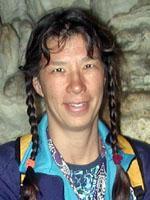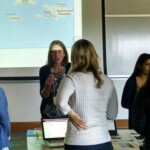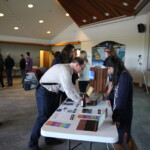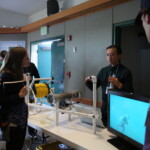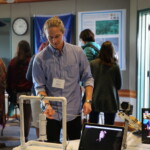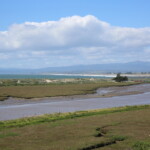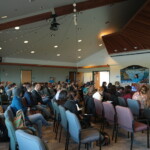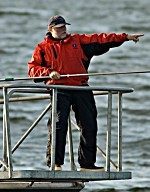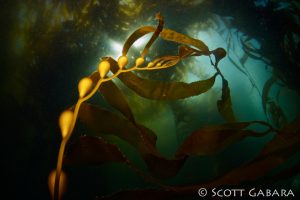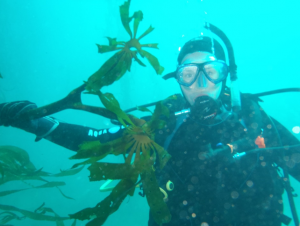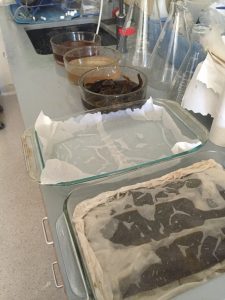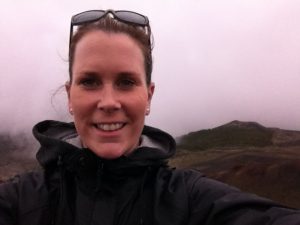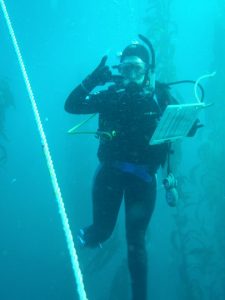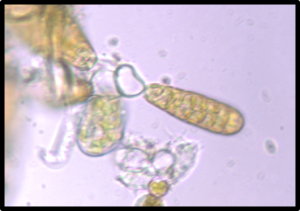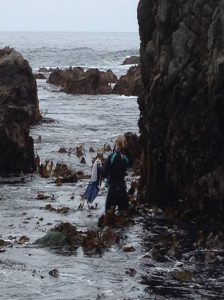Thesis Abstract:
The giant kelp Macrocystis pyrifera is often considered competitively dominant to other kelp species due to its high productivity. However, on the microscopic level, previous studies found that Macrocystis can be inferior to other kelp species through microscopic interspecies chemical competition. Recruitment failure can be caused by neighboring kelps because there is no species’ specificity in the stereochemistry of the signaling chemical used during reproduction to initiate spermatozoid release; therefore, Macrocystis spermatozoid release is pre-empted by that of its competitors. To date, this interaction has been tested between Macrocystis and only one other kelp taxon, Pterygophora. To test whether Macrocystis is always chemically outcompeted microscopically, I investigated the competitive outcome, by tracking sporophyte production, between Macrocystis and five native kelps using laboratory studies. Tests with Pterygophora californica and Ecklonia arborea showed asymmetric results indicating that Macrocystis was the inferior kelp. Studies using Alaria marginata and Egregia menziesii found symmetric results where both competing species did poorly in the presence of Macrocystis. Lastly, when Macrocystis was settled with Postelsia palmaeformis, there was no significant difference in sporophyte production between polycultures and monocultures for either species. These results indicate that the competitively superior species will vary depending on the specific species interaction . Studying how Macrocystis competes with species microscopically is essential to understanding its recruitment and subsequent population structure which provides the biogenic habitat in the dynamic kelp forest.
Funding:
MLML John H. Martin Scholarship, COAST graduate award, Myers Trust grant, SJSU Graduate Equity Fellowship, H. T. Harvey Memorial Fellowship, and David and Lucille Packard Foundation.
